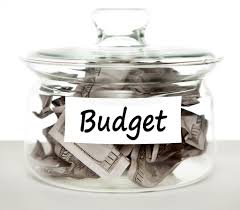A budget well done is the most precise and useful tool for analyzing your finances imaginable, but so often your budget doesn’t work, doesn’t inspire and you find yourself overspending and losing control of your cash flow. (Make it to the end of the month, before you run out of money. Check out The Beauty Of Budgeting.)
TUTORIAL: Education Savings Account
Theoretically, budgeting allows you to see where the financial leaks are, if you are spending more than you earn, how to alter and prioritize what you do with your money, and the important steps you need to take on the road to financial freedom.
But how can you ensure that doing your budget is not lumped into the same category as doing your taxes? We don’t really like anyone or anything telling us how to spend our money each month – so here are our top five ways to feel empowered rather than restricted, and make budgeting fun and successful!
1. Find Your Motivation
Without motivation, sticking to a budget will be impossible. It is imperative to outline exactly why you are trying to budget. If you are in debt, then the reason is obvious. You want to free yourself from the financial and emotional burden, endless repayments and debt spiral that you’re trapped in.
Visualize the moment when your debts are paid off, when your credit card is cleared and the repayments are finished. It is this feeling that will help you to stay on track.
If you are trying to save money or make cut-backs, ask yourself why. Is it because you’d like to save a house deposit? Would you like a bigger car or are you saving so you can retire early? Knowing your goal will make sticking to your budget possible, so be sure to work out what your reason is.
If you were trying to diet you might stick a photograph of your thinner self on the fridge. How about sticking a picture of your holiday home on your wallet? Work out why you are budgeting and use this is your motivating and driving force when times get tough and temptations vast.
2. Find a Friend
What do you do if you want to go running, stick to a gym regimen or lose weight? You find a pal who wants to achieve something similar and motivate one another.
For your budgeting goals, you could update each other weekly on your total spent and discuss ways you can save money. How about setting goals together and egging each other on? Wouldn’t it be wonderful to have a money saving buddy – you could even start a group for those working on personal finance. It is important and encouraging to feel that you are not alone and excellent to learn tried and tested tips from your peers. If you don’t have time to attend or establish such gatherings, there are plenty of online communities where you can meet others trying to budget their way to a better future. (When you’re short on cash, a strict budget is the best tool for finding financial stability. See Budgeting When You’re Broke.)
3. Make it a Game
If you have a competitive streak, can you use this to your advantage? What targets can you set yourself? Did you spend $400 on grocery shopping last month? Could you halve that figure this month if you were inventive? This will make you feel that you are working towards something, rather than working against an urge to spend.
How much can you save on utilities each month if you turned the thermostat down a few degrees when you are away? How many days in a row can you spend zero dollars? Constantly setting yourself mini targets will keep your mind from getting bored of the task at hand.
4. Reward Yourself
By setting manageable goals, you have something tangible to aim for, and will have a sense of real achievement when you get there. This will mean that you can reward yourself and have something to look forward to!
Mind you, we don’t mean that if you manage to save a few hundred dollars you should blow this on a shopping spree as a treat. Let’s say you have brought sandwiches into work every day for a month, when previously you’d pop out and buy lunch – why don’t you have one lunch out with friends to celebrate your frugality and discipline?
5. Use Tools Already Available
Taking pen to paper and writing your plans and budget down can be a powerful tool, meaning that you have committed to the task. But if you are like me, a list can only do so much – and there are excellent free (we love the word free) resources online that can help you plan and monitor your spend – and make those tricky calculations that bit easier.
Mint.com is an excellent service that plans your budget online based on average monthly spending. Each week you receive a handy email that lists your current balance and tips for how you can curb your spending. It will also turn your budget into a glorious array of charts and graphs! (Learn how to break down and understand a corporate budget. Refer to How Budgeting Works For Companies.)
You’re Just Pre-Planning!
If the word “budget” is like nails on a chalkboard to your ears do not despair. By following these simple and easily implemented tips, your budget can be your key to financial happiness.Your budget is simply you planning where you pay-check is going to go before you get it. Think of it that way, and see that it’s really not so restrictive after all!

